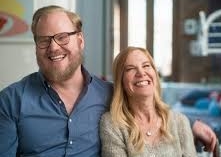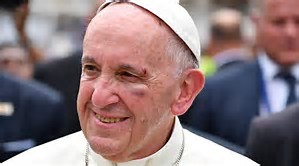
You Don’t Want Your Brain Surgeon to Have a Hobby
My life as a young Catholic was pretty tribal. Our family had a Catholic doctor, went to a Catholic-owned cafeteria (on the few occasions when we didn’t eat at home), and (on the even fewer occasions) when my parents – and later when I was a young adult – went out for a beer, went to a Catholic-owned tavern. We never missed Mass on Sundays and cheered for Notre Dame.
My four brothers and sister and I went to Catholic schools and two of us became priests. Most of our family’s friends were Catholic. We were interested in the celebrities who were Catholic. They included stars like Bing Crosby, Gregory Peck, Loretta Young, Grace Kelly, Spencer Tracy and James Cagney.
I must admit that I still like hearing that contemporary stars, like Liam Neeson, Robert De Niro and Stephen Colbert, are Catholic. And I was pleased when I learned that my favorite standup comedian, Jim Gaffigan, is Catholic.
A New Appreciation
I had an epiphany relatively late in life regarding my faith and its relationship to other faiths and to people of no faith. Somewhere in the college portion of my seminary training, I gained a new appreciation for the traditional Protestant denominations, feeling solidarity with them, and discovering how much my faith has in common with Judaism. Later, I began to appreciate my commonality with non-believers.
It’s all part of growing up, I suppose, but I must admit that I retain some of my Catholic tribal instinct. Does that have something to do with why I laugh so hard at Gaffigan’s jokes?
It may at least have something to do with why I was especially interested when America magazine, the Jesuit periodical I quote often in these blogs, published an article on Gaffigan – about his family life (he has five children and lives with his wife, Jeannie, in a small, New York apartment), his career and his faith.
Empathize
“I went to a Catholic high school, a Catholic college;” says Gaffigan, “but for most of my 20s I would probably identify as an agnostic. I probably went through a couple of years where I was a rebellious atheist. So I empathize with their point of view.”
Gaffigan goes on to say that he now has a “greater openness to moving beyond intellectual questions about God and making the leap of faith.
“Cynicism is very comforting,” he says. “Getting caught up in the larger intellectual debate might be constructive on an intellectual level, but is that serving the person you want to be?”
Jim and his wife, Jeannie, who is also his comedy writer, had a sitcom on TV, which I never saw, that lasted two seasons. Says Bill McGarvey, the America article’s author: “…The world the Gaffigans portrayed on their show is simply an amplified comedic version of the messy and complicated lives that most American Catholics – and people of all faiths – unconsciously negotiate every day. What is astonishing is not that they pulled it off but that we do not see that reality reflected more regularly in popular media.”
That may be because many people consider “religious” people and their lives boring and humorless.
A “Shiite Catholic”
McGarvey writes that Gaffigan “is not interested in holding himself up as a model Catholic,” (as opposed to Jeannie, whom Gaffigan calls a “Shiite Catholic”) but a key to his, and all comedians’ success, is finding humor where others don’t. He and Jeannie were able to do that in the face of Jeannie’s 2017 surgery for a brain tumor.
“I don’t want our brain surgeon to have hobbies,” says Gaffigan. “You want him to be like, ‘You know what I like to do when I’m not doing brain surgery? I’m thinking about how I can be a better brain surgeon.’”
Tribalism may not have a place in genuine religion, but humor certainly does.
“Humor is, in fact, a prelude to faith;” wrote the famous theologian, Reinhold Niebuhr, “and laughter is the beginning of prayer…. The saintliest men frequently have a humorous glint in their eyes. They retain the capacity to laugh at both themselves and at others…. To meet the disappointments and frustrations of life, the irrationalities and contingencies with laughter, is a high form of wisdom.”


